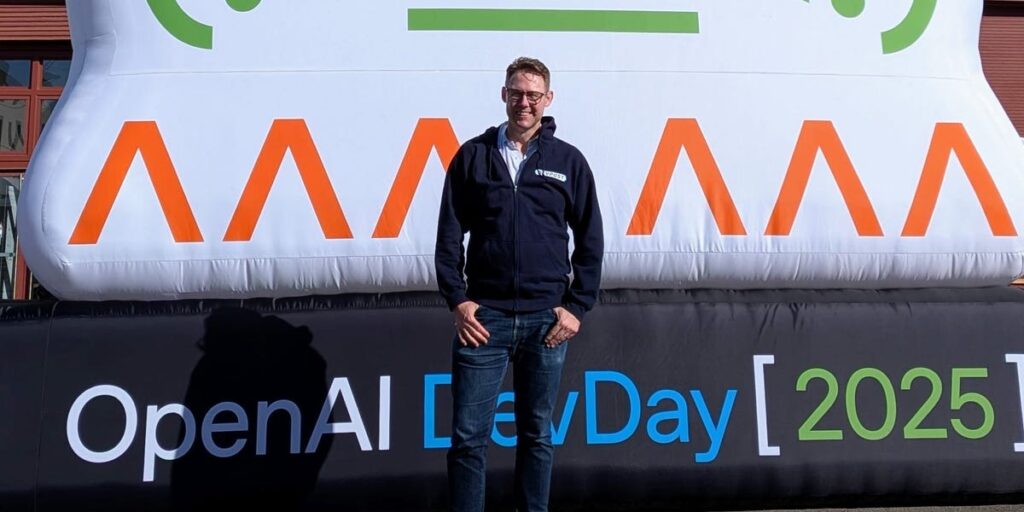I met Richard Murby while waiting in a long line to get into OpenAI’s DevDay conference in San Francisco this week. He’s the director of business development at Devpost, which helps developers participate in hackathons. I asked Richard how he uses AI. Here are his thoughts, which have been edited for clarity and length.
What do you use AI for at work?
I use AI for three main goals: to help me do my best work, stay organized, and inspire new ideas.
I trained a Google Gemini model on my most effective emails, giving it a large sample of my writing and Devpost context. When drafting important messages, I collaborate with the model to ensure I’m expressing myself as I intend. It’s still my tone and ideas, but the model helps me deliver consistently strong communication.
I also built a Google Gemini CLI “Executive Assistant” to replace my visual Kanban board with a markdown-based, conversational task manager. It integrates with my calendar and email via an MCP server, allowing Gemini to help prioritize tasks using real context from my schedule and inbox. It can even run Gemini’s Deep Research on a task and feed results or draft emails directly into my notes. The best part is the ongoing dialogue — I see huge potential for expanding this system’s functionality.
(CLI = Command Line Interface, a common tool developers use. Kanban boards are project-management tools offered by companies including Atlassian, Asana, and Monday.com.)
What’s been your most impactful AI use?
Two stand out. First, Devpost’s mission is AI distribution, helping organizations bring tools to developers worldwide. I couldn’t advise clients effectively without using these tools daily myself. Second, my writing performance has improved dramatically. Every message I send now represents the clearest articulation of my ideas, thanks to AI’s real-time feedback and pattern learning from my past successes.
What hasn’t worked?
The hardest part of adopting AI is making time to experiment. You must deliberately think about which tasks can improve with AI and iterate. Some ideas don’t pan out, but that’s part of discovery. Hackathons work for this reason — they create space to test, fail, and learn, which is essential for developers.
What’s your advice for non-technical people?
Don’t worry about how AI works, just explore what it can do. Be descriptive in your prompts, ask thoughtful questions, and give context. Results may not come instantly, but as your experience and the AI’s context grow, time savings and performance gains will follow.
Sign up for BI’s Tech Memo newsletter here. Reach out to me via email at abarr@businessinsider.com.
Read the full article here


